Just weeks after it was passed, Britain's 'Safety of Rwanda Act' is already coming under fire in the courts. Judicial reviews have begun to produce changes in the guidance the Home Office issues to its staff. And in Northern Ireland, a judge has ruled that the Illegal Migration Act should be disapplied in Northern Ireland.
Britain's 'Safety of Rwanda Act' completed its passage through parliament and was passed into law on April 25 this year. But just weeks after the legislation was enacted, it is already coming under fire in the British courts.
The initial stages of at least three judicial reviews of the act have already been requested, and one of them has already resulted in changes in the guidance the Home Office issues to its staff on how to apply the legislation.
Over in Northern Ireland, a judge has ruled that certain provisions of the "Illegal Migration Act" -- the overarching legislation of which the 'Safety of Rwanda Act' is a main pillar -- should be disapplied in Northern Ireland due to concerns over its potential to undermine the human rights protections guaranteed in the region under European law.
And while the courts are deliberating, arrivals of migrants in small boats continue. Every day for the past ten days, migrants have been arriving in Dover. Since May 4, more than 1,000 migrants have arrived, contradicting the government's assertion that the Rwanda act would act as a deterrent to small boat crossings.
Government data was last updated on May 12, but the BBC reports that Border Force officers brought more people ashore on Monday (May 13). As of Sunday, almost 9,500 people had arrived in this way since the beginning of the year.
Also read: Rwanda refuses to guarantee how many asylum seekers it will take from the UK
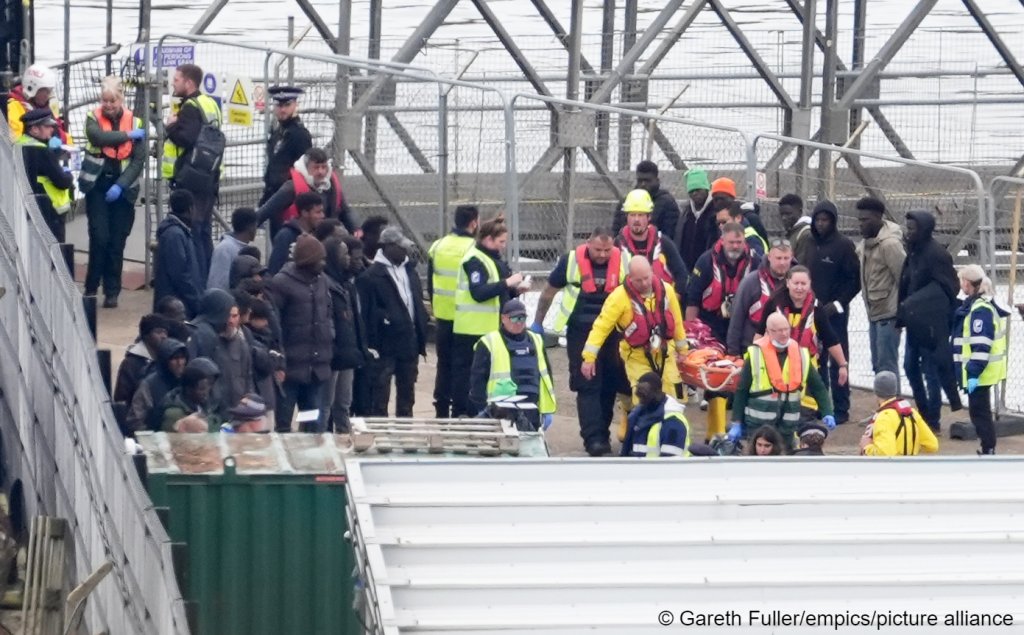
Northern Ireland court rules against UK government too
On Monday, May 13, Belfast’s High Court, ruled parts of the UK government's migration policy, namely the "Illegal Migration Act" could infringe on the rights of asylum seekers, as laid out in the Good Friday Agreement, signed in 1998 between the UK and the Republic of Ireland, to bring a framework of cross-party governance to Northern Ireland and its devolved parliament.
Belfast's High Court has ordered the "disapplication" of sections of the act citing concerns that they may undermine human rights protections guaranteed in the region under the post-Brexit arrangements.
The presiding judge in the case, High Court Justice Michael Humphreys, reports Sky, also said that aspects of the Illegal Migration Act, which has at its heart the plan to send asylum seekers to Rwanda, are "incompatible with the European Convention on Human Rights (ECHR) which the UK remains signed up to.
The situation in Northern Ireland is further complicated by stipulations in the so-called Windsor Framework, agreed last year, which set out to protect rights in Northern Ireland as part of post-Brexit UK. Northern Ireland now borders an EU country the Republic of Ireland, but because of provisions contained in the Good Friday Agreement, the two countries cannot have a hard border between them. The Windsor agreement is essentially there to protect this contradiction.
Also read: UK confirms first migrants are detained for deportation to Rwanda
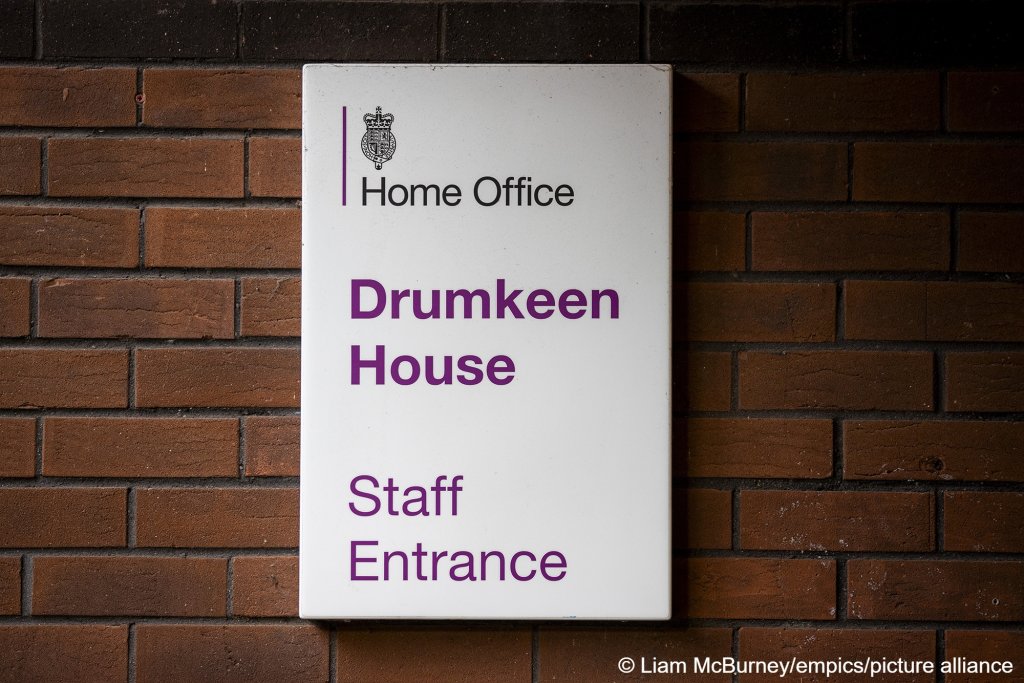
Sensitive border
Now that Britain has exited Europe, the border between Northern Ireland and the Republic would normally be expected to have additional controls, like those at the UK’s maritime border with France, Belgium and the Netherlands. However, the Good Friday agreement acknowledges that conditions on this particular land border may necessarily differ.
Tensions are already in place between the UK and Ireland after the Dublin government announced it would begin returning asylum seekers who cross the border from Northern Ireland to the UK by the end of May.
Ireland’s justice minister Helen McEntee has told a parliamentary committee in Ireland that "more than 80 percent of recent arrivals in Ireland come via the land border in Northern Ireland." It has been reported that many of those people have crossed the border because of fears of being deported to Rwanda.
The British government has already said that it will not accept returns unless France in turn accepts returns from Britain -- a facility it ceased to offer once the UK exited Europe.
Also read: Britain and Ireland in cross-border migration row
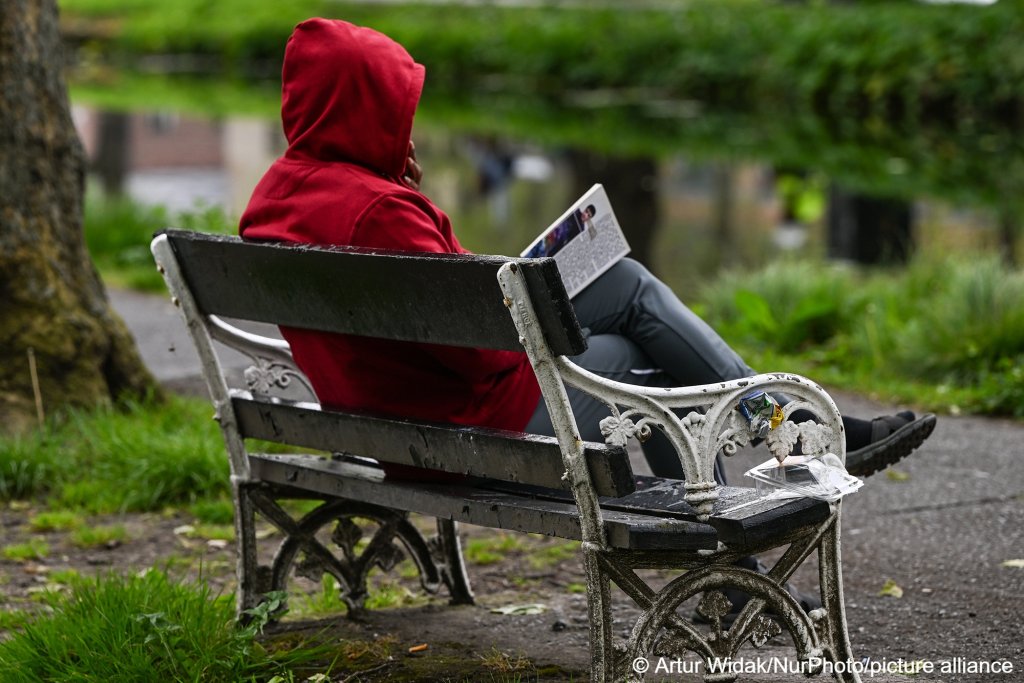
Further hearings expected end of May
Monday’s case was brought to the Belfast High Court by Northern Ireland’s Human Rights Commission. It concerned the case of a 16-year-old asylum seeker from Iran, who arrived in the UK as an unaccompanied minor from France last summer.
He is currently living in Northern Ireland and his case for asylum has not yet been decided. However, according to Sky News, he has said that if he were to be returned to Iran, he would either be killed or sent to prison there.
A further hearing is expected in the case at the end of May. The lawyer representing the teenager, Sinead Marmion, told Sky: "This is a huge thorn in the government’s side and it has completely put a spanner in the works."
Sunak commented, reported the German news agency dpa, "This judgment changes nothing about our operational plans to send illegal migrants to Rwanda this July or the lawfulness of our Safety of Rwanda Act," he said.
"We continue to work to get regular flights off to Rwanda in the coming weeks and nothing will distract us from that or delivering to the timetable I set out. We must start the flights to stop the boats. I have been consistently clear that the commitments in the Belfast/Good Friday Agreement should be interpreted as they were always intended, and not expanded to cover issues like illegal migration. We will take all steps to defend that position, including through appeal," Sunak said.
Also read: Asylum seekers trying to escape Rwanda policy fleeing to Ireland
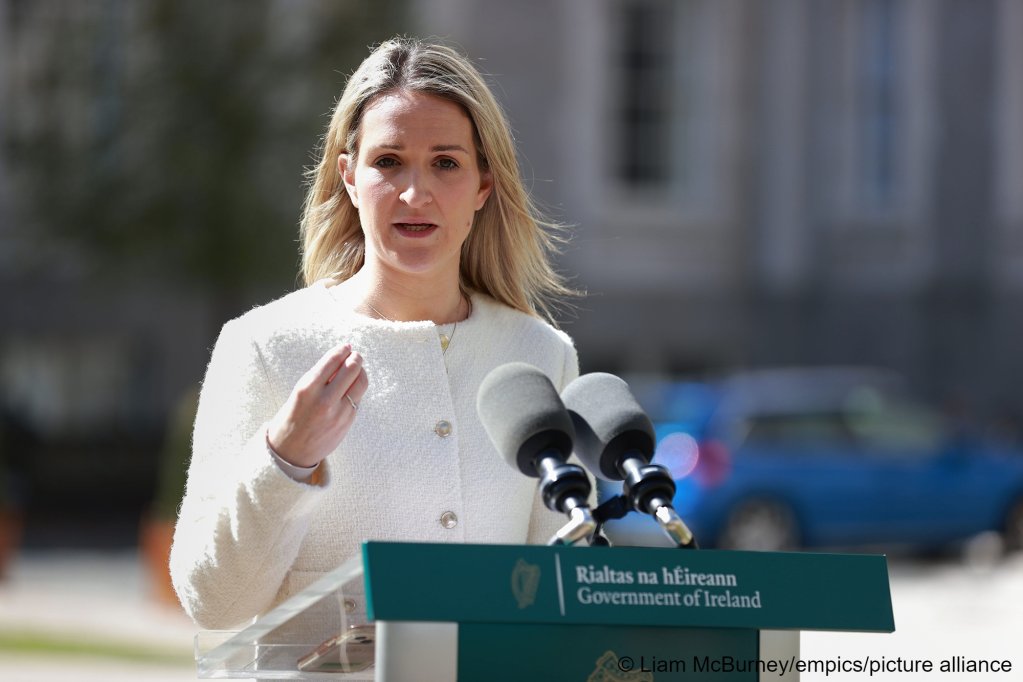
Changes to the Safety of Rwanda Act
Also on May 13, the Home Office published updates to its guidance, first published on April 29, indicating to Home Office decision makers that "compelling evidence should be considered by decision-makers in the context of human rights claims and inadmissibility decisions."
The changes came about as a result of the charity Asylum Aid’s claim at pre-action stage, noted the organization Free Movement, which publishes information and legal advice about migration to the UK. The organization provided a handy guide to both versions, highlighting the changes made.
The new guidance, states the government, "must be used to assist decision-makers in the Third Country Unit when considering claims made by persons who are being considered for safe third country inadmissibility action and removal to Rwanda under the terms of the Migration and Economic Development Partnership (MEDP)."
It sets the emphasis much more on a person's individual circumstances and less on the declaration of the act itself, that Rwanda should be considered safe. This decision must be related to a person's individual circumstances, notes the guidance, and not just because a decision maker may have decided that Rwanda is per se a safe country because it is declared a safe place by the act itself.
Also read: UN sounds alarm over UK-Rwanda law
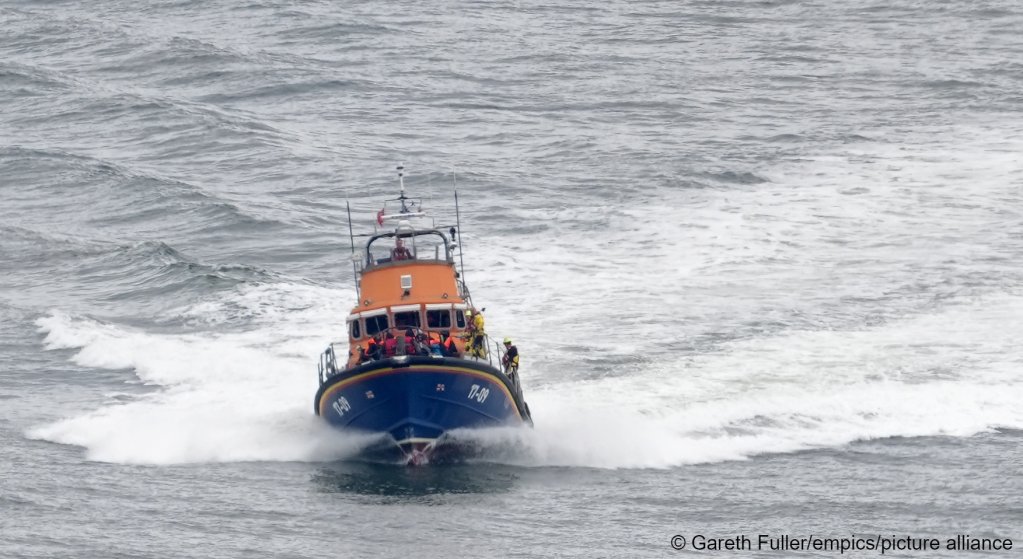
Does the claimant face a breach to their human rights?
In the old version from April 29 the guidance simply stated: "The Safety of Rwanda Act requires decision makers to conclusively treat Rwanda as a safe country."
However, on May 13, the government added: "But this requirement does not prevent you from considering claims that Rwanda is unsafe for the claimant in question based on their particular individual circumstances -- such a claim must be based on compelling evidence."
The guidance continues that the decision maker now has to be sure that: "the claimant’s life and liberty will not be threatened in Rwanda by reason of their race, religion, nationality, membership of a particular social group or political opinion." It goes on to add that decision makers have to be sure that the claimant will not face a breach to their "ECHR rights because Rwanda is not safe for them."
Children's rights considered
Just three weeks since the Safety of Rwanda Bill was passed into law by parliament, there is already a third judicial review underway regarding the act, so more changes could be on their way.
According to Free Movement’s weekly newsletter, published on May 13, "a pre-action letter has been sent by Bhatt Murphy acting on behalf of Humans for Rights Network." The letter acts as a challenge "around the risk of unaccompanied children being sent to Rwanda."
The review is being called for, adds Free Movement, because of the "well-known problems with age assessments, which will only be exacerbated by the lack of safeguards in the processes used to send people to Rwanda."
Also read: What will the Rwanda policy mean for Afghan asylum seekers?
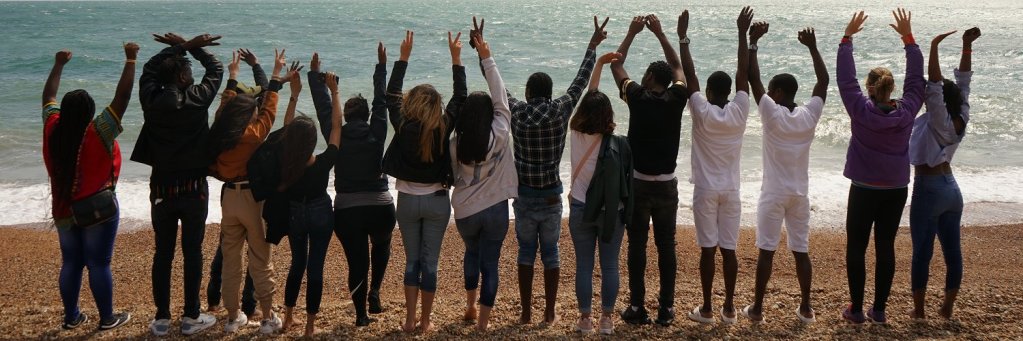
Government appears to contradict itself over flight timetable
Another organization that has called for a judicial review of the Safety of Rwanda Act is the FDA trade union, representing managers and professionals in public service. As part of this review, the government's legal department has already undergone what Free Movement describes as "a fairly cringeworthy change of position on when the earliest flights are intended to take place, so as to bring it in line with the Prime Minister’s speech."
Sonia Lenegan, editor of Free Movement, refers to a judgment issued on May 8 following the FDA judicial review. The confusion appears to have arisen because of a conflict in the timelines between what the Prime Minister outlined in a speech made on April 22, and then official guidance confirmed in a government letter a week later on May 2.
Initially the government said on May 2 in a letter that "the earliest a removal is expected to take places is July 1-15, 2024." However, just a day later, they provided a "clarification," to try and bring the dates in line with the Prime Minister’s speech made on April 22 in which he said the first flights would leave "in ten to 12 weeks." The tenth week from April 22 would be the week commencing June 24.
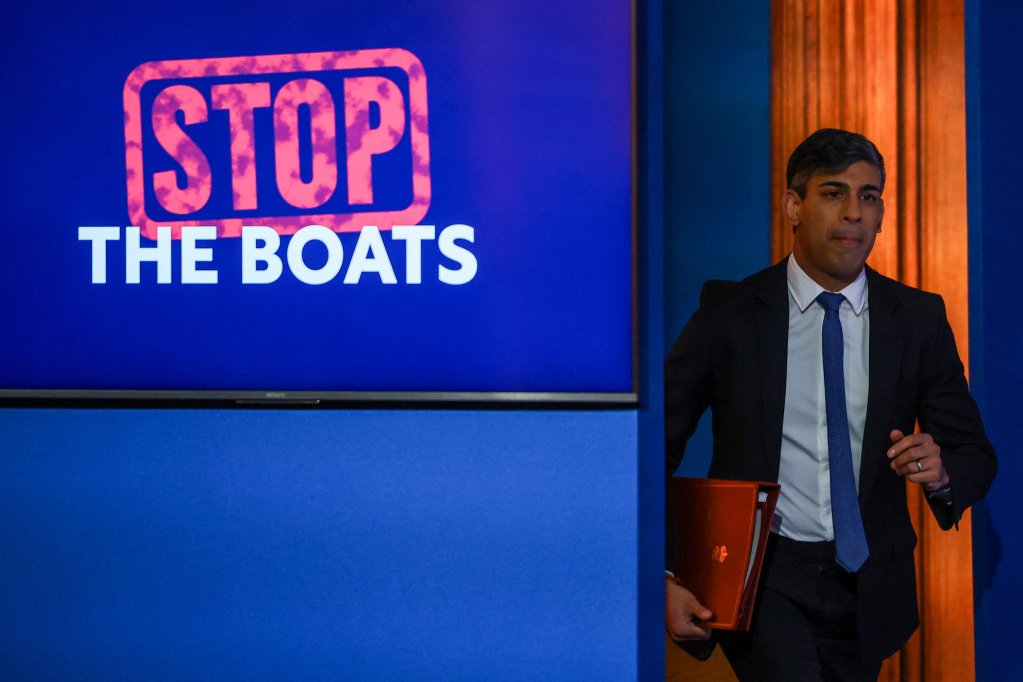
Justice rules government's letter was not a 'clarification' but a 'change'
The government thus wrote, "we are instructed that this is the earliest date for the first removals and that the decision on the precise date will be based on operational considerations and progress over the coming weeks."
However, the judge ruled that the changes from May 3 were not to be accepted, stating that there "was nothing unclear about what the Government Legal Department (GLD) said on May 2." He said the instructions in the letter dated May 3 were not a "clarification" as the government claimed but "a change of position." The judge added that this change "should have been acknowledged frankly." And therefore it is "not necessary, nor would it serve the interests of justice, to alter it."
In a separate development, the I newspaper noted that just a week after the British government had begun publishing the figures on the number of boats prevented from leaving the French coast, it had stopped publishing them. According to the I, this was because the government was forced, "after consultation with the French" to admit that it wasn’t able to verify all the figures before publishing, and therefore the information contained therein was likely to be "erroneous."
With dpa, AP, Reuters and AFP
